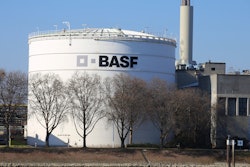CHARLESTON, W.Va. (AP) — West Virginia is expanding its tourism funding in hopes of offsetting negative publicity from the January chemical spill in the Elk River that spurred a water-use ban for days.
Officials on Thursday announced a $1.2 million cash infusion that will more than double the Division of Tourism's budget for the spring advertising campaign that begins Monday.
The Charleston Gazette reports (http://bit.ly/1f1oSN3) that the additional funding will allow the ad campaign to expand to new markets and to run more frequently in an effort to improve the state's image.
"We acknowledge we need to be pro-active in looking toward our image and our ability to market ourselves, especially in this region of the country," Commerce Secretary Keith Burdette said in announcing the additional funding to the state Tourism Commission. "This is a necessary effort on our part. It is certainly something that has to be a priority."
The campaign will expand into several Ohio markets, and will include radio ads in Greensboro, N.C.; Lexington, Ky., and Richmond and Roanoke, Va., among other markets, said Tom Crooks of the Stonewall Group.
"The more times people hear and see our message, the more they're inclined to consider West Virginia as a destination," he said.
Crooks also unveiled the results of a consumer survey conducted in 11 key markets in West Virginia, surrounding states, and North Carolina.
Of those surveyed, 52 percent had a high level of awareness regarding the water incident and 11 percent said it would make them less likely to vacation in West Virginia. The percentages were highest in-state, where 92 percent of West Virginians surveyed said they had read or heard a great deal about the chemical spill, and where 14 percent said it would make them less likely to vacation in-state.
On the positive side, 80 percent of those surveyed were aware the leak had affected only a portion of the state, and people who said they had previously vacationed in West Virginia indicated they would be likely to return, Crooks said. More than 85 percent of past West Virginia visitors said they would recommend the state to their friends as a travel destination.
"That's critical," Crooks said.






















